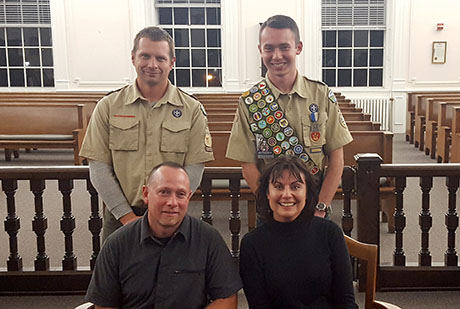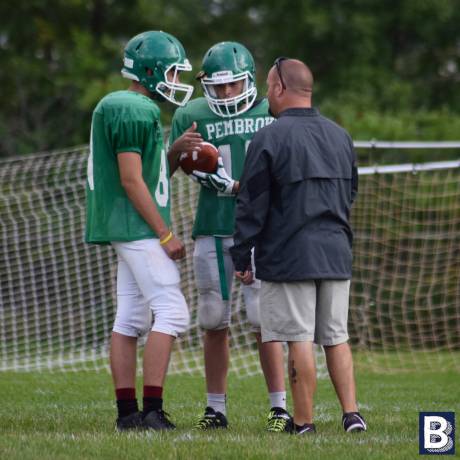It didn't take long for a jury, after a weeklong trial, to deliberate and find Charles Schilling, of Pembroke, guilty of counts of second-degree burglary and second-degree criminal trespass.
The charges stem from an incident Thanksgiving Day 2015 when Schilling broke into a house where his girlfriend was living, got into an altercation, and she grabbed a .357-Magnum to defend herself, fired three times, striking him at least once in the leg.
In closing arguments, Public Defender Jerry Ader tried to convince the jury that there was ample reason for a not-guilty verdict based on reasonable doubt.
"What really happened?" Ader told the jury. "Since yesterday, those words keep coming back to me. What really happened?"
He said the only version of events the jury had to go on was the testimony of Schilling's girlfriend, who admitted to being confused on some points.
"She is admittedly not sure about what happened," Ader said. "Anything is possible, she said. When she was asked, she said, 'Anything is possible.' She could remember certain things and she couldn't remember certain things."
Ader said the couple had been together for years with a well-established pattern in a dysfunctional relationship of fighting and talking, and texting, then fighting more, with verbal and physical abuse going both ways.
In order to convict Schilling of burglary, Ader said, the jury would have to find that Schilling went to the house, owned and occupied by the father of Schilling's girlfriend, with the intent to commit a crime once he got inside.
It seemed quite probable, Ader said, that Schilling went to the house on Thanksgiving only to talk, but as usual, the talk escalated into a fight.
If Schilling didn't intend to assault and menace the victim, then he couldn't be found guilty of burglary, Ader said.
"Based on the testimony you heard, reasonable doubt is clear," Ader said.
When Assistant District Attorney Robert Zickl stood to begin his closing arguments, he stepped to the lectern in front of the jury and for a few minutes, just stood there and looked at them.
His point was, he said, that when he approached the lectern, his intention was clear. His intention was to speak. The jury didn't expect him to remain silent. The context explains intent, he said. The jury knew that if he stood up and walked to the lectern, he intended to speak. They didn't really have to guess at his intention.
In the same way, Schilling's intention was clear. He had told a friend that he was angry with his girlfriend because he believed she had performed in a pornographic video that had been posted online. Schilling's intent was also clear because he had been at the house a few days earlier and gave his girlfriend "a stiff beating," Zickl said. Zickl said Schilling's intent was also clear because when he arrived at the house on Nov. 26, 2015, he tried to break down the front door, damaging it, and then gained access by kicking down another door.
"How can anyone say he did not have the intent to commit a crime when he got inside, when the first thing he did when he got inside was commit a crime?" Zickl said.
It was also clear that Schilling was guilty of criminal trespass because he well knew that his girlfriend's father had barred him from his property. Schilling's girlfriend had even warned him on prior occasions not to come over because her father wouldn't allow it.
Schilling will be sentenced at a later date.












